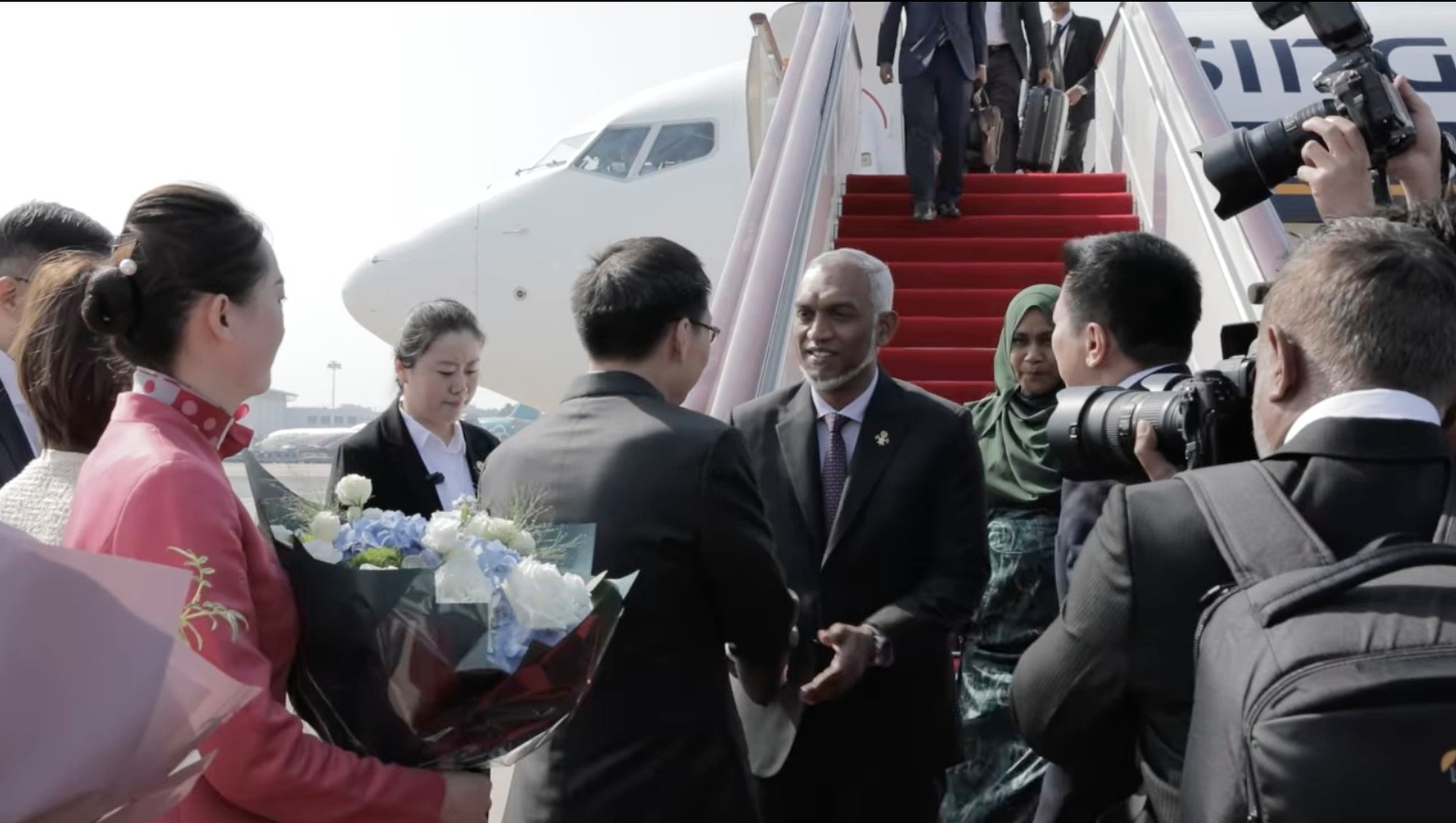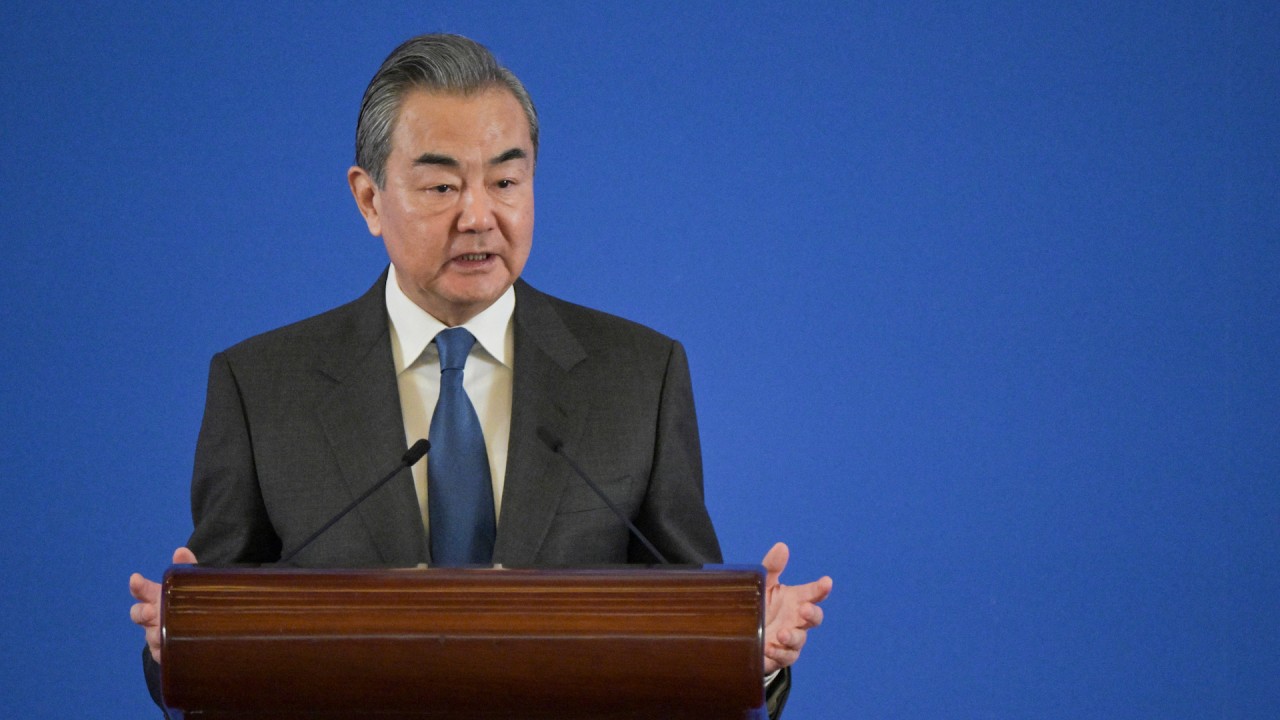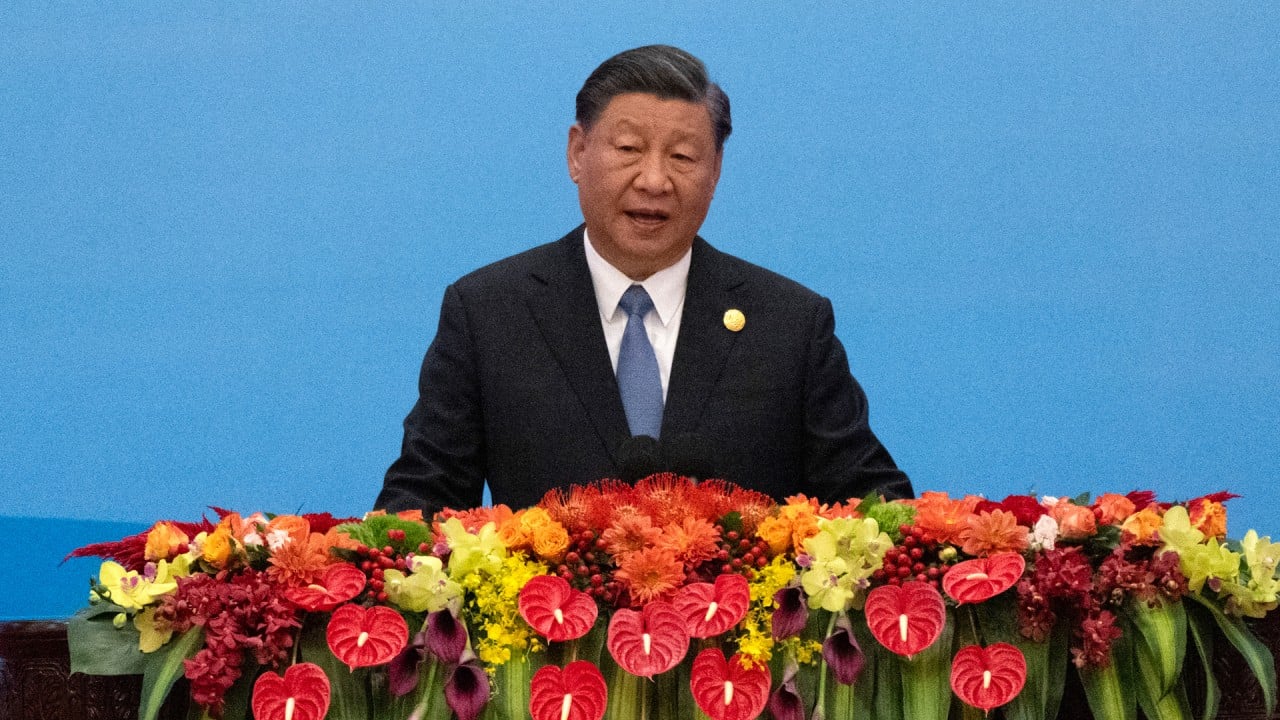
Belt and road: Maldives’ president vows greater cooperation with China on infrastructure projects
- Mohamed Muizzu tells Invest Maldives business forum China is one of his country’s closest allies and developmental partners
- New Muizzu presidency marks shift in Malé after his predecessor accused China’s infrastructure initiative of saddling the Maldives with excessive debt
Muizzu landed in China on Monday for a five-day state visit that will include meetings with his Chinese counterpart Xi Jinping and Premier Li Qiang in Beijing, making the Maldives’ newly elected president the first head of state welcomed by China this year.
During the Invest Maldives business forum in the southeastern city of Fuzhou, Muizzu said Malé would continue to cooperate with China in key Maldives infrastructure plans under the belt and road programme.
He said his country would explore the bilateral free trade agreement (FTA) that had been signed but not yet activated under the previous administration, according to Muizzu’s presidential office.
“[Muizzu] spoke on the long-standing relationship between the Maldives and China, which dates back to the ancient Maritime Silk Road. He stated that China remains one of the closest allies and developmental partners of the Maldives,” the office said.
Observers said engagement between the two countries would focus mainly on economic issues, including China’s support for the Maldives’ pillar tourism industry and a renewed push for the belt and road programme.
But they added that the Maldives’ dependency on India, which traditionally had great influence in South Asia, could not be challenged.
Delhi would continue to observe Muizzu’s further approach in case of potential competition with the world’s second-largest economy, they said.

Lin Minwang, deputy director of the Centre for South Asian Studies at Fudan University, said that for China, engagement with Beijing-friendly Muizzu meant China’s investment could be “viewed objectively”.
“The current government [of the Maldives] has reversed the previous government’s attitude towards China and the [belt and road programme] … This is positive for China. At least the new president can regard the project objectively.”
Under the Belt and Road Initiative, China helped the Maldives to build landmarks such as the expansion of the Velana International Airport, and the building of the cross-sea China-Maldives Friendship Bridge, or Sinamalé Bridge, connecting Malé and neighbouring Hulhulé Island.
Former president Solih blamed China’s infrastructure initiative for saddling the Maldives with excessive debt and promoting government corruption.
During Solih’s term from 2018, China’s investment in the islands slowed or even decreased even though Chinese-led projects in the Maldives were not cancelled or suspended, according to China’s Ministry of Commerce.
Meanwhile, the China-Maldives FTA that was signed during the 2013-2018 presidency of Abdulla Yameen did not come into effect because of Solih’s policy on China.
Lin said there could be a push for an effective FTA regime under Muizzu, adding that belt and road projects could possibly be resumed.
Aditya Gowdara Shivamurthy, an associate fellow at the Delhi-based think tank Observer Research Foundation (ORF), said it was expected that the Maldives would ask China for help with its tourism recovery and to aid its sluggish financing status by investing and easing the debt in belt and road projects.
“There is a dire need for additional money and financing. The Maldives’ economy is in real bad shape and Muizzu is expecting to continue his everyday operations and fulfil his electoral promises through external support,” he said.
In July, China surged ahead of Russia to be the largest contributor of tourists to the Maldives, the first time since the Covid-19 pandemic. Before the pandemic, China had long been the biggest source of visitors for the island state.
But the Maldives also faces debt problems like its South Asian neighbour Sri Lanka, where China is also the biggest actor. China Development Bank, Industrial and Commercial Bank of China and Export-Import Bank of China hold more than 60 per cent of the Maldives’ sovereign debt, according to data from the Maldives’ Ministry of Finance.
Because of the Covid-19 pandemic, China has been continuously conducting debt suspension to the Maldives under the bilateral and G20 framework since 2020.
“Muizzu needs to [do] debt restructuring. Chinese loans are quickly maturing and Maldives is running out of foreign reserves – due to commercial and external borrowing. The Sri Lankan episode is a grim reminder of the necessity of debt restructuring for Maldives,” Gowdara Shivamurthy said.
As the leader of the People’s National Congress – a party that has pushed a political campaign called “India out” for years – Muizzu has called for less connection with the South Asian powerhouse. However, he was likely to downplay hostility to Delhi while in office, observers said, adding that China was not an option to replace India’s dominant influence in the Maldives.
In 2022, China was the Maldives’ second-biggest trading partner, accounting for 15.9 per cent of its total trading volume, surpassing India, which was the third largest with 13.7 per cent. Oman is the biggest trading partner with the islands, according to open data patrol TrendEconomy.
But Lin said India’s influence in the Maldives went beyond the economy and was “not only geographic, but also cultural, and historical”, a role he said China could not yet replace.
“Muizzu has been deemed pro-China by many. But the fact is that he has done nothing to antagonise India yet, and more importantly, he hasn’t done anything to calm India’s anticipations,” Gowdara Shivamurthy said.
Muizzu suspended an agreement signed in 2019 allowing India to conduct hydrographic surveys in Maldivian waters that was intended to help Delhi understand information such as sea floor topography and water depth.
Gowdara Shivamurthy said India was still observing the new administration and exploring ways to cooperate for the next five years.
“India also has its benefits – the island nation is still dependent on India for imports, development assistance, security, education, health, etc,” he added.
Meanwhile, as Washington continues to promote an Indo-Pacific security agenda, the Maldives, an Indian Ocean island country, may become a power battleground after the US established an embassy in Malé last year.
In a call last week with US Secretary of State Antony Blinken, Maldives’ Foreign Minister Moosa Zameer vowed to cooperate on defence and other matters in the Indo-Pacific region.
But Gowdara Shivamurthy said the US would prefer India take the lead in cooperation with the Maldives.
Meanwhile, Lin said the Indian Ocean was not China’s priority and Beijing was not promoting the Maldives as a security focus.



